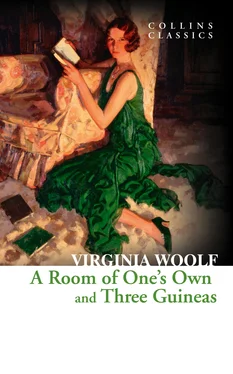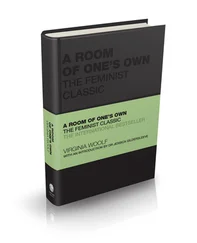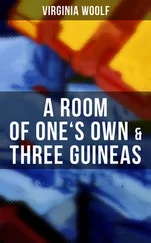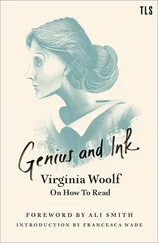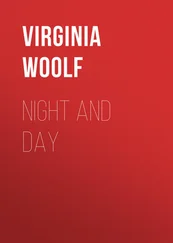Woolf invents Shakespeare’s sister, in the character of Judith Shakespeare, to illustrate the point that a woman in Elizabethan England would have had neither the means nor the opportunity to succeed as a writer regardless of her talent. Woolf then embarks on a literary journey from the 1600s to the 1900s, discussing the development of women’s literature in contrast with that written by men.
Nine years later, Woolf published a sequel, Three Guineas , and in this essay she explored similar themes. With the threat of World War II looming, Woolf imagines that she has received a letter from a man who seeks her advice on preventing the war. In essence her reply is a damning indictment of a male-dominated society, suggesting that the structure of patriarchy causes fascist ideas to take hold. Woolf had visited both Germany and Italy and seen, first-hand, the corrosive effects of fascist ideology. The essay then becomes something of a diatribe, urging governments to promote female education so that women can rise to the fore in public life.
Virginia Woolf came from a background of intellectualism, however, this was largely cemented by her family’s relocation from Kensington to Bloomsbury, where she became part of an intellectual elite known as the Bloomsbury Set. Together, they were all goldfish in the same bowl, looking out at the world around them with a similar artistic palette.
The pretentions of her social group actually allowed her to blossom as a writer, because she was given the encouragement and freedom she needed to experiment with her prose. In short, she was allowed to think of herself as an author and she was told what she wanted to hear. This was vitally important to someone with nagging self-doubt, so she developed deep and lasting bonds with those who saw and nurtured her potential. Indeed, she married one of them – Leonard Woolf – and remained devoted to him.
In time, of course, the pretentions of the Bloomsbury Set transcended into success, as they were undoubtedly intelligent, talented and well educated. This process of ascendance was, in part, aided by a number of stunts designed to draw public attention. One stunt in particular has become famous for its daring and humour: the Dreadnought Hoax. This was an elaborate plan to gain egress to the battleship HMS Dreadnought for no other reason than to have a good look around. A number of the Bloomsbury Set, including Woolf, disguised themselves as Abyssinian princes. They wore the appropriate garb of robes and turbans, but they also ‘blacked-up’ and sported fake beards. With escort and interpreter in tow, they boarded a VIP coach and took a train from Paddington to Weymouth, where they were received as genuine royalty with honour guard and allowed to inspect Royal Navy fleet. All the while, they pretended to communicate in a foreign tongue by uttering gibberish furnished with Greek and Latin, which the interpreter duly pretended to understand and translate.
Having returned to London, a photograph of the Bloomsbury Set, still in character, was sent to the Daily Mirror newspaper and the hoax was revealed. Not surprisingly, the affair turned into a scandal. The Foreign Office and the Royal Navy were the target of a great deal of finger-pointing, partly in fun and partly in seriousness for allowing such a blatant lapse in national security. The situation wasn’t helped by the fact that the Bloomsbury Set were pacifists, which only served to rub salt into the wound. When the Navy high command pushed to have the perpetrators punished, they found themselves powerless to do anything. For one thing, no laws were broken, and secondly the consensus was that they themselves should be punished for allowing themselves to be beguiled by such a lame practical joke.
Needless to say, the Dreadnought Hoax planted the Bloomsbury Set in the public consciousness once and for all, as the oxygen of publicity was theirs to breathe in and enjoy. The hoax occurred on 7 February, 1910. Woolf’s first novel was begun the same year, although she did not publish until 1915, by which time she was already a minor celebrity.
Despite her subsequent success, Woolf was never particularly contented, however, for she had such a troubled soul and indefatigable mind. Today her malady would, doubtless, be described as a bipolar condition, for she oscillated from exuberant mood highs to despairing clinical lows. In the end, she was convinced that she would never come full circle again, so she decided to cut her loses while in the grip of a crushing depression that rendered her unable to see any light at the end of the tunnel. Virginia Woolf died in 1941, leaving behind a highly respected, progressive and considerable canon of essays, critique and novels.
CONTENTS
Cover
Title Page A ROOM OF ONE’S OWN AND THREE GUINEAS Virginia Woolf
History of Collins
Life & Times
A ROOM OF ONE’S OWN
Chapter 1
Chapter 2
Chapter 3
Chapter 4
Chapter 5
Chapter 6
THREE GUINEAS
Chapter 1
Chapter 2
Chapter 3
Classic Literature: Words and Phrases
Footnotes
Copyright
About the Publisher
A ROOM OF ONE’S OWN
But, you may say, we asked you to speak about women and fiction–what has that got to do with a room of one’s own? I will try to explain. When you asked me to speak about women and fiction I sat down on the banks of a river and began to wonder what the words meant. They might mean simply a few remarks about Fanny Burney; a few more about Jane Austen; a tribute to the Brontës and a sketch of Haworth Parsonage under snow; some witticisms if possible about Miss Mitford; a respectful allusion to George Eliot; a reference to Mrs Gaskell and one would have done. But at second sight the words seemed not so simple. The title WOMEN AND FICTION might mean, and you may have meant it to mean, women and what they are like, or it might mean women and the fiction that they write; or it might mean women and the fiction that is written about them, or it might mean that somehow all three are inextricably mixed together and you want me to consider them in that light. But when I began to consider the subject in this last way, which seemed the most interesting, I soon saw that it had one fatal drawback. I should never be able to come to a conclusion. I should never be able to fulfill what is, I understand, the first duty of a lecturer to hand you after an hour’s discourse a nugget of pure truth to wrap up between the pages of your notebooks and keep on the mantelpiece for ever. All I could do was to offer you an opinion upon one minor point–a woman must have money and a room of her own if she is to write fiction; and that, as you will see, leaves the great problem of the true nature of woman and the true nature of fiction unsolved. I have shirked the duty of coming to a conclusion upon these two questions–WOMEN AND FICTION remain, so far as I am concerned, unsolved problems. But in order to make some amends I am going to do what I can to show you how I arrived at this opinion about the room and the money. I am going to develop in your presence as fully and freely as I can the train of thought which led me to think this. Perhaps if I lay bare the ideas, the prejudices, that lie behind this statement you will find that they have some bearing upon women and some upon fiction. At any rate, when a subject is highly controversial–and any question about sex is that–one cannot hope to tell the truth. One can only show how one came to hold whatever opinion one does hold. One can only give one’s audience the chance of drawing their own conclusions as they observe the limitations, the prejudices, the idiosyncrasies of the speaker. Fiction here is likely to contain more truth than fact. Therefore I propose, making use of all the liberties and licences of a novelist, to tell you the story of the two days that preceded my coming here–how, bowed down by the weight of the subject which you have laid upon my shoulders, I pondered it, and made it work in and out of my daily life. I need not say that what I am about to describe has no existence; Oxbridge is an invention; so is Fernham; ‘I’ is only a convenient term for somebody who has no real being. Lies will flow from my lips, but there may perhaps be some truth mixed up with them; it is for you to seek out this truth and to decide whether any part of it is worth keeping. If not, you will of course throw the whole of it into the wastepaper basket and forget all about it.
Читать дальше
